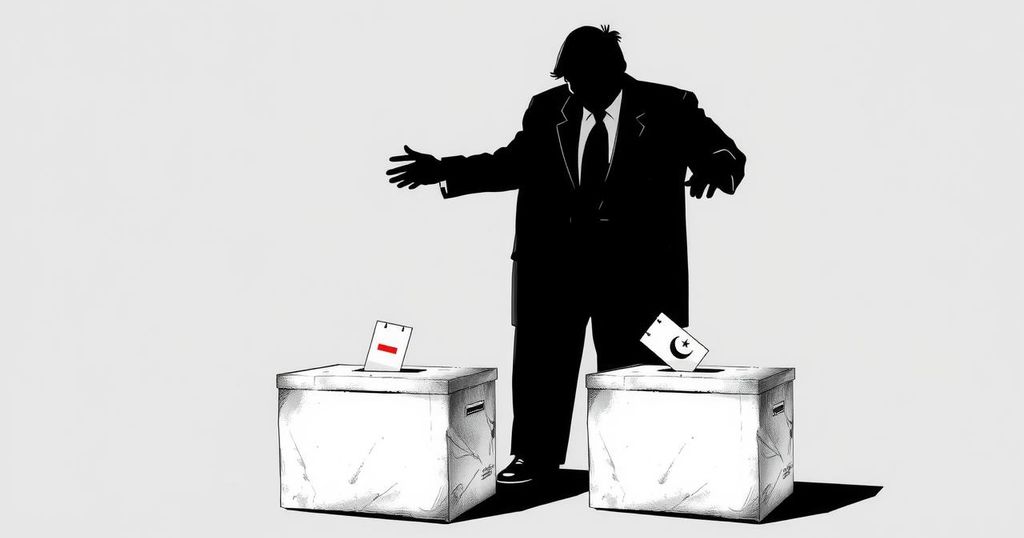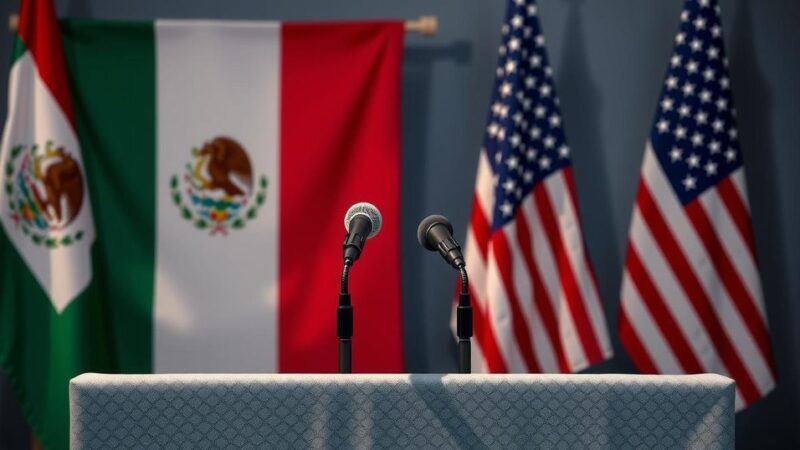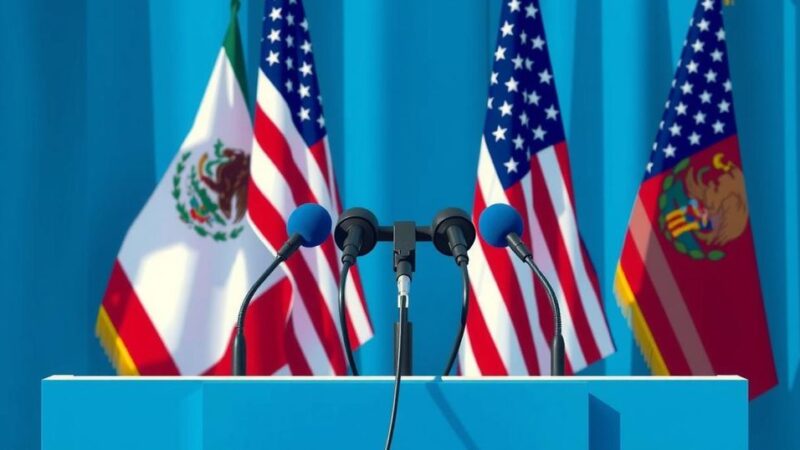The proximity of elections in Canada and Australia is profoundly impacted by Donald Trump, with both conservative leaders, Pierre Poilievre and Peter Dutton, witnessing alarming declines in polling. The elections highlight a growing public disapproval of Trump, paralleling both nations’ sentiments about their sovereignty. The dynamics indicate substantial shifts in voter preferences, emphasizing the need for political candidates to reconsider their strategies in response to Trump’s influence.
The upcoming elections in Canada and Australia are significantly influenced by the political landscape shaped by former President Donald Trump. Initially, opposition conservative parties were expected to perform favorably; however, recent polling trends show a drastic decline in their standings against the incumbent, center-left parties. Ben Wellings, a senior lecturer at Monash University, notes that the declining numbers for leaders Pierre Poilievre in Canada and Peter Dutton in Australia correlate directly with Trump’s disruptive political influence.
Polling data reveals a major shift, especially in Australia, where the Coalition enjoyed a rise in popularity early in 2023 but suffered a sharp decline beginning in February, coinciding with Trump’s inauguration and subsequent trade conflicts. Similarly, the Conservatives in Canada, once leading by 20 points, inexplicably fell behind the ruling Liberal Party, as Prime Minister Justin Trudeau’s strong stance against Trump re-energized his party’s support. According to Clayton Chin, this drastic turn changed the election dynamics by questioning Canada’s sovereignty.
The narrative surrounding these elections has also been complicated by actions taken by leaders within the conservative parties. Peter Dutton received backlash for his positive remarks about Trump. Dutton’s attempt to mirror Trump’s strategies, such as appointing an unusual shadow minister in Jacinta Price, further entrenched the association between Australian conservatives and Trumpism, particularly when Price adopted a phrase reminiscent of Trump’s campaign slogan.
Antony Green, chief election analyst at ABC, remarks that parallels between Trump’s impact on both the Australian and Canadian conservative campaigns exist, though the implications differ in intensity. Canada grapples with a more visceral impact from Trump’s policies, such as trade tariffs, which have underscored national independence concerns. In contrast, Australia’s Conservatives appear to be reassessing their alignment with similar populist ideals once more popularized by Trump.
Recent polling data indicates a growing anti-Trump sentiment among Australian voters, particularly among undecided individuals, with a significant portion indicating they are less likely to vote for Dutton due to Trump’s influence. Concurrently, various public sentiments reveal doubts about the reliability of the United States as a partner, mirroring the feelings in Canada regarding their own sovereignty.
Dr. Chin highlights a deep sense of betrayal felt by both Canadians and Australians due to their longstanding alignment with the United States. This sentiment stems from years of support for American leadership amidst ethical and political dilemmas. As both countries prepare for their elections, the unexpected turn of events serves as a reminder that polling can be misleading, and candidates must adapt quickly to unforeseen circumstances, such as Trump’s far-reaching influence in global politics.
In summary, the influence of Donald Trump looms large over the elections in Canada and Australia, causing significant shifts in the political landscape. Both Pierre Poilievre and Peter Dutton experience declining poll numbers, reflecting a broader anti-Trump sentiment. The upcoming elections will be pivotal in determining the future direction of both countries, as candidates grapple with the complexities introduced by Trump’s disruptive politics and its repercussions on national interests and voter confidence.
Original Source: www.abc.net.au






